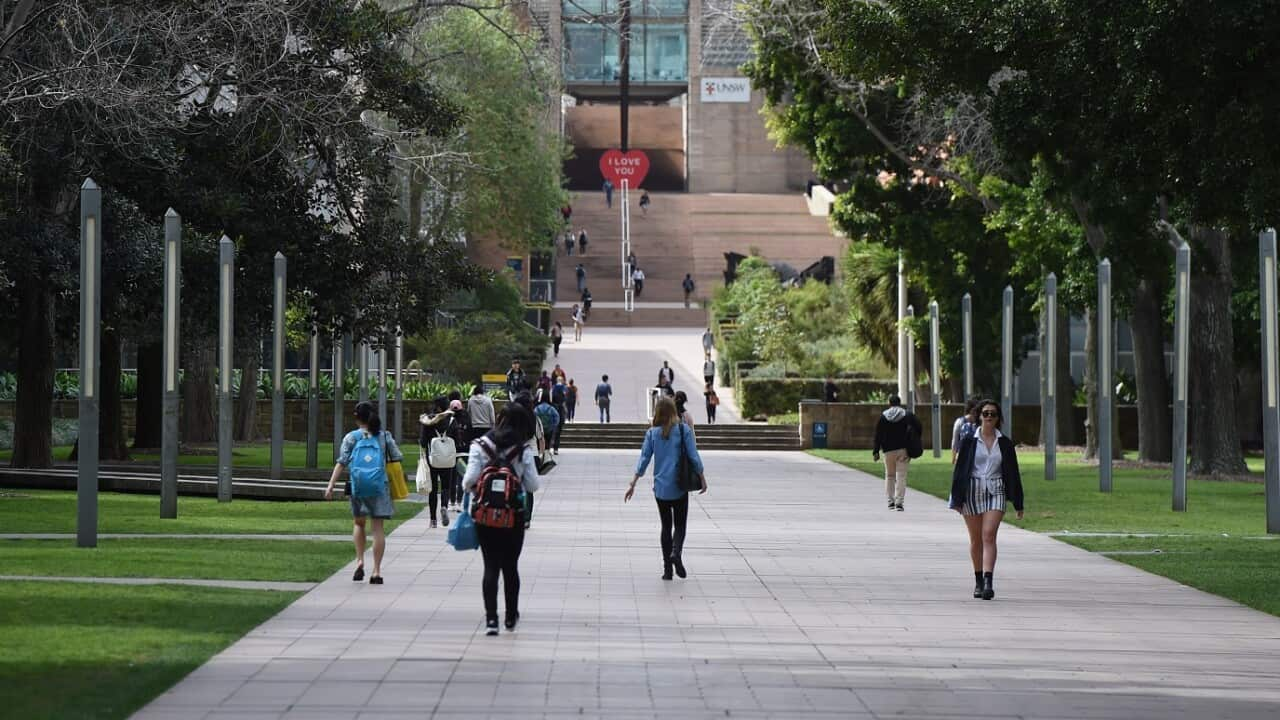KEY POINTS
- Education Minister Jason Clare says there's a good argument for chaning how HECS indexation is applied
- He said he ordered the team conducting a review into education reform to look at the issue.
- The average HECS debt is $24,000.
The education minister says there could be merit in changing how HECS interest is calculated after thousands of current and former students woke up to higher debt.
Education Minister Jason Clare said there was a good argument for changing being applied to the original debt rather than the current balance.
If a student has a debt of $20,000 and $2,000 is paid off, indexation is paid on the original figure, not the $18,000 balance.
"That strikes me is not right," he told reporters in Canberra on Friday.

Education Minister Jason Clare says there may be merit in changing how HECS interest is calculated Source: AAP / Lukas Coch
The interim report will land on his desk next month.
Wiping out HECS indexation, which the Greens are calling for, would cost the budget about $9 billion.
Mr Clare said the current arrangements were better than a bank loan charging interest for a profit, pointing to the fact that even if the total bill goes up, repayments do not as they're tied to your wage band.
"The taxpayer lends you $1 and they get that dollar back at its real value," he said.
Asked about concerns a higher HECS debt could impact loan and credit assessments by banks, he said lenders take into consideration higher wages and earning potential.
"What you pay every year, every month is based on your income, not based on the indexation and banks will take that into account as well," he added.
Mr Clare said going to university was still worth it as a graduate's average pay is $100,000 compared to a high school graduate's $70,000.
"Finishing school and going to TAFE or going into university is your ticket to the show," the minister said.
The average HECS debt is $24,000.










